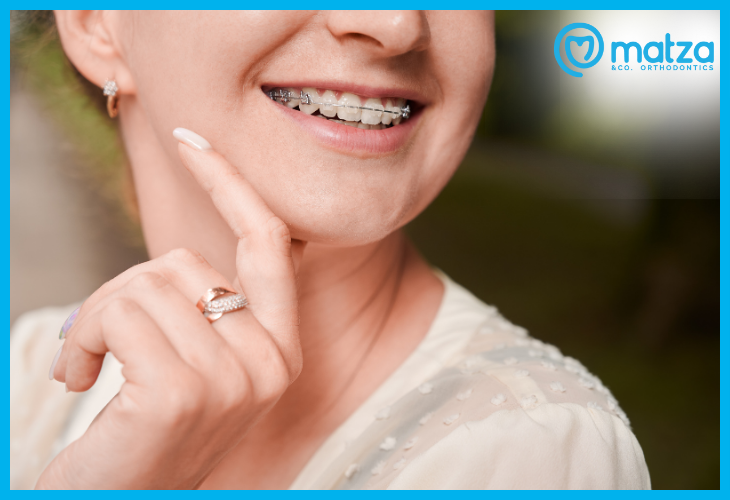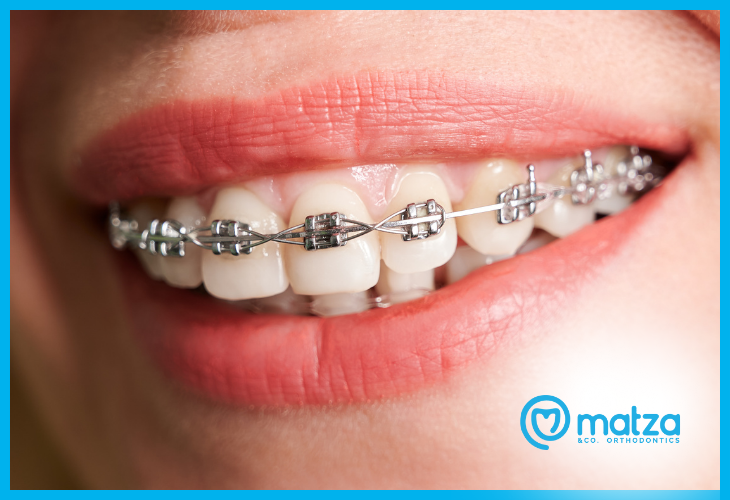Treatments for Teeth Shifting in Adults

Our teeth may naturally shift or move out of alignment as we age. This can be caused by factors such as tooth loss, jaw changes, or habits like grinding or clenching teeth. Teeth shifting can not only affect your appearance but also lead to functional problems, such as difficulty chewing and speaking. Understand the causes and treatment options below.
If you have questions, Dr. Barry Matza has been in private practice, specializing in Orthodontics, in Boca Raton, Florida, since 1979. He can answer all your questions and outline all of your options. Dr. Matza also joined the staff at Boca Raton Regional Hospital, Delray Medical Center, and most recently, Joe DiMaggio Children’s Hospital as Lead Craniofacial Orthodontist. He also works closely with Craniofacial Surgeons at Nicklaus Children’s Hospital in Miami, Florida. If you have questions, he is the expert you have been looking for.
Teeth Shifting: Why and How
While it can be tempting to think of your teeth as totally immovable, they offer some flexibility and movement over time, thanks to how they’re fixed to your mouth. Your teeth are connected to your upper and lower jawbones by the periodontal ligament and cementum material. This unique combination allows your mouth to withstand the forces placed on your teeth by chewing and other regular activities.
Your teeth shift naturally throughout your life and as the result of other stressors and triggers. Orthodontic treatment often uses this natural capacity for change by deliberately altering your teeth and bite position.
Causes of teeth shifting may include:
- The aging process
- Orthodontic treatment (such as braces)
- Adjustment after orthodontic treatment
- Injury or impact to your face or mouth
- Grinding your teeth (also known as bruxism)
- Tooth decay, gum disease, and other dental conditions
- Gaps caused by missing teeth
It’s essential to address teeth shifting as it can lead to other, more severe problems with your teeth, bite, and overall dental health.
Can You Prevent Teeth Shifting?
Due to the forces put on your mouth through daily activity and changes to your body through the natural aging process, there is a normal amount of teeth shifting that you can’t prevent. Luckily, that’s totally fine, as dental professionals are prepared to assist you and any symptoms you may encounter during these changes.
When it comes to preventing teeth shifting, being proactive is your best bet (like most dental issues). You can lower your risk of developing severe enough teeth shifting to require treatment by simply practicing a proper oral care routine. This will double by helping you avoid an enormous range of other dental problems down the line!
Steps for proper oral hygiene include:
- Brushing your teeth twice a day, gently and with a soft-bristled toothbrush
- Cleaning between your teeth with a flossing device, interdental brush, or floss
- Rinsing with mouthwash or antiseptic mouthrinse after meals
- Consuming a healthy diet low in sugary foods and drinks
- Avoiding smoking and tobacco products
- Visiting your dental professional regularly (at least twice a year) and following their recommendations and aftercare instructions (like wearing your retainer as instructed)

Treatments for Teeth Shifting
There’s no magic fix-all for teeth shifting, as the appropriate treatment depends on its severity and the underlying cause. Some teeth shifting will require no treatment and produce no symptoms, while more extreme cases will require orthodontic interventions or dental procedures.
It’s a good idea to check in with your dental professional for their treatment recommendation because the sooner you confront shifting teeth, the more likely you are to prevent associated problems that require additional treatment. This is especially true if you find yourself thinking, “my teeth are shifting, and they hurt.”
Treatments for teeth shifting may include:
- Orthodontic solutions (like braces or a retainer)
- Dental restorations (like crowns)
- Tooth implants (for missing teeth)
- Treatment to address the underlying cause (like gum disease or decay)
Your teeth shifting is a natural consequence of aging and regular activity like chewing but can lead to problems if not addressed or severe. It’s a great idea to check in with your dental professional to see if your bite or teeth need any treatment; otherwise, a proper dental routine is your best bet. You’re now prepared with an understanding of how teeth shifting occurs and how to prevent it as best you can.

Notice your teeth shifting? Don’t wait for the problem to worsen. Our experienced orthodontist can help you achieve the straight, beautiful smile you deserve. Schedule a consultation today at 561.368.3480. Check our IG @matzaorthodontics to learn more.
